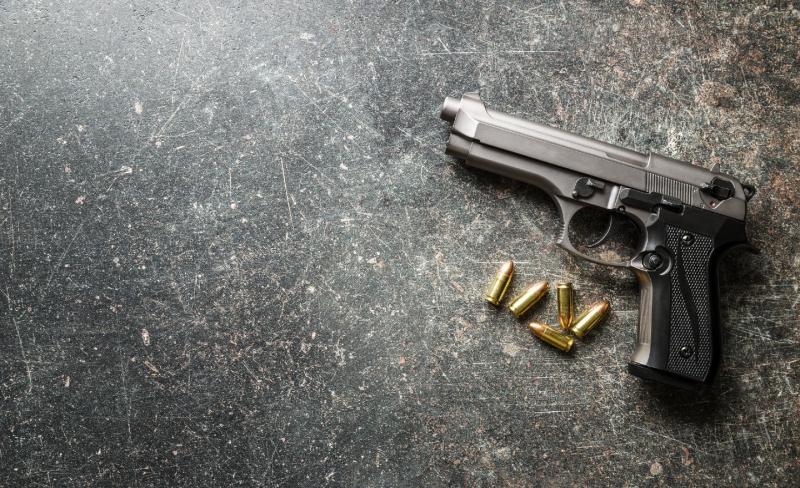Gun-control activists need to stop demonizing John Lott



Gun-control activists need to stop demonizing John Lott
The recent reaction of Griffin Dix to the appointment of John Lott as an adviser to the DOJ Office of Justice Program reflects the continued inability of the gun-control advocacy community to address the fundamental issues that prevent us from making an effective response to the problem of gun violence.
© Istock gun and ammo
Lott's book "More Guns, Less Crime" has become a flashpoint for arguments on both sides of the gun debate. On the one hand, the book is celebrated by the pro-gun lobby as a justification for 'stand your ground' laws and other legal rationales for armed self-defense. On the other hand, the book is condemned by gun-control activists as error-filled propaganda that promotes the false idea that guns are an effective response to fears about personal safety and threats of crime. As a long-time member of the Brady Campaign, Griffin Dix obviously belongs to the latter group.
The first edition of John Lott's book was published in 1998. Over the previous decade, violent crime declined by almost 40 percent. At the same time, the number of states that granted concealed-carry licenses (CCW) without requiring proof of special need doubled from 15 to 30 states.
Lott argues that in many jurisdictions that began issuing CCW, violent crime such as robberies and assaults declined while anonymous crimes like burglary increased. He supports this finding with regression analysis that shows that crime rates are more sensitive to CCW issuance than to other demographic or social trends.
To counter Lott's work, Griffin Dix cites a study by respected scholars John Donohue and Ian Ayers who produced seemingly contradictory results by substituting different sets of variables measured through alternate regression analysis models. In fact, producing critiques of Lott's work has become something of a cottage industry among academic researchers, with critical reviews coming from Daniel Webster at Johns Hopkins, David Hemenway at Harvard, and Franklin Zimring at Berkeley, to name just a few.
The problem with all these efforts to discredit Lott's thesis, however, is they fail to confront the most important assumption in his work, an assumption based on a misreading both by Lott and his critics of how and why gun violence actually occurs.
Lott's thesis rests upon the idea that when a particular jurisdiction begins issuing CCW licenses, this process will make the criminals believe that their victims might be armed. Hence, criminals switch from in-person crimes like robbery and assault to impersonal crimes such as burglary where a live victim is rarely around.
Contrary to what Lott argues, intentional gun assaults are not committed by 'bad guys' against 'good guys.' Indeed, victims of violent assaults are overwhelmingly individuals who come from the same demographic groupings and neighborhoods as their attackers, and in as often as 50 percent of such assaults, the victim committed behavior that precipitated the violent event.
Lott's critics, on the other hand, are wrong when they promote the idea that gun violence increases because more people are walking around with legal guns. Criminal gun injuries - homicides, aggravated assaults - are rarely committed by people with legal access to guns. The Violence Policy Center publishes an annual report, "Concealed-Carry Killers," which after suicides are deducted, gives us roughly 100 fatal shootings committed by CCW-holders annually, which happens to be less than .007 percent of all fatal gun assaults each year.
What both Lott and his critics fail to acknowledge is that Americans increasingly believe that access to a gun is more of a benefit than a risk, a belief which continues to grow whether crime trends go up or go down.
A 2018 poll taken by NBC found that nearly 60 percent of Americans believe their home is safer if it contains a gun. Since somewhere between 30 percent and 40 percent of American households contain a legal gun, it would appear there are many Americans who do not own guns but nevertheless feel that having a gun around is more of a blessing than a curse.
If gun-control activists are seriously committed to developing and implementing strategies that will reduce gun violence, they need to stop demonizing John Lott.
Instead, they need to develop a persuasive and effective narrative that will convince gun owners about the risk of owning guns. Until and unless this occurs, gun owners will continue to cite John Lott's research as one of the reasons why they won't give up their guns.
Michael R. Weisser has manufactured, imported and sold both law-enforcement and civilian guns since 1968. He wrote a weekly gun-violence column for Huffington Post and is a Patriot Life Benefactor member of the NRA.
Continue ReadingShow full articles without "Continue Reading" button for {0} hours. Microsoft may earn an Affiliate Commission if you purchase something through recommended links in this article.











A 2018 poll taken by NBC found that nearly 60 percent of Americans believe their home is safer if it contains a gun. Since somewhere between 30 percent and 40 percent of American households contain a legal gun, it would appear there are many Americans who do not own guns but nevertheless feel that having a gun around is more of a blessing than a curse.
I am one of those with out a gun who is a strong pro 2A person.